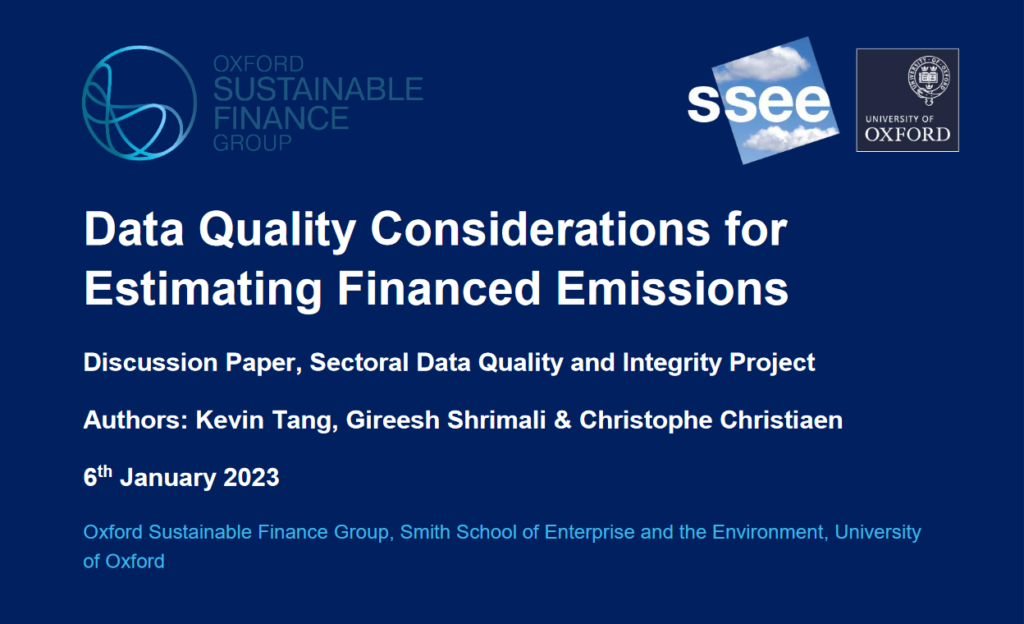Key takeaways
- Reporting standards’ theoretical assessment and scoring of data quality does not match the reality of “highest quality” corporate–reported emissions data, and financial institutions lack confidence in standardized carbon accounting guidance that reported and verified disclosures are the most accurate and reliable source of emissions information.
- FIs therefore rely on alternative data sources and methods, leading to non–standardization, inaccuracy, and inconsistency in emissions estimation and reporting between financial institutions.
- “Lower quality” granular asset and physical–activity data can be reasonably accurate and meet desirable criteria for transparency, consistency, relevancy, completeness, and comparability.
Summary
Reporting standards for carbon accounting have been developed to assist financial institutions in compiling their financed emissions — the client emissions that are attributable to the institution’s financing. Some of these include guidance on determining data quality for data sources used. For instance, the Partnership for Carbon Accounting Financials (PCAF) data quality hierarchy proposes reported and verified emissions disclosures as the most accurate and reliable source of emissions data, followed by various methods of inferred and estimated emissions.
In this paper, we examine the extent to which guidance on data quality are aligned with the practical considerations and availability of emissions information for financial institutions. For financial institutions, an understanding of differences in data quality is particularly important, as they need to compile emissions data across multiple individual companies in their portfolio.
However, the way these disclosures have been calculated by corporations can vary in methodology and accounting boundaries. This can result in several problems since variability in reporting methods or boundaries can amplify divergence in reporting errors, emissions estimation, and emissions that are attributable to the financial institution — ultimately impacting the way emission targets are set and progress or alignment monitored. We further explore revised guidance on assessing data quality, and the accuracy and precision of other methods of emissions estimation.
Learn more
The Sectoral Data Quality and Integrity Project (SDQI), hosted by the Oxford Sustainable
Finance Group and the UK Centre for Greening Finance and Investment, has been
established to analyse and provide sector-specific insight into the quality of greenhouse gas
emission datasets.
SDQI will conduct empirical research comparing the quality of different available sectoral company and asset-level datasets, aiming to develop practical sector-specific guidance and frameworks suitable for financial institutions to evaluate, apply and communicate data quality.




